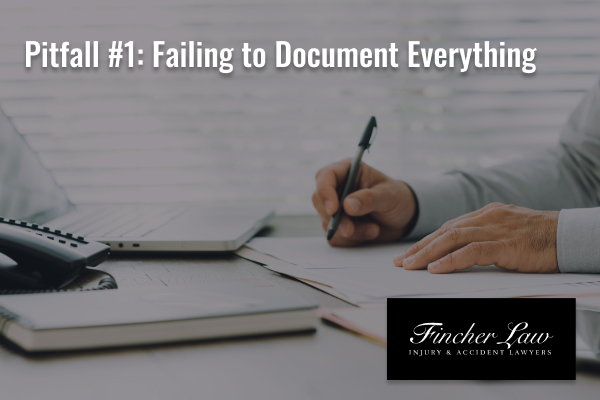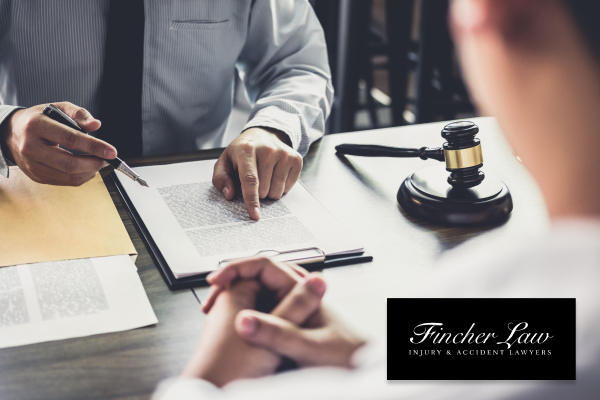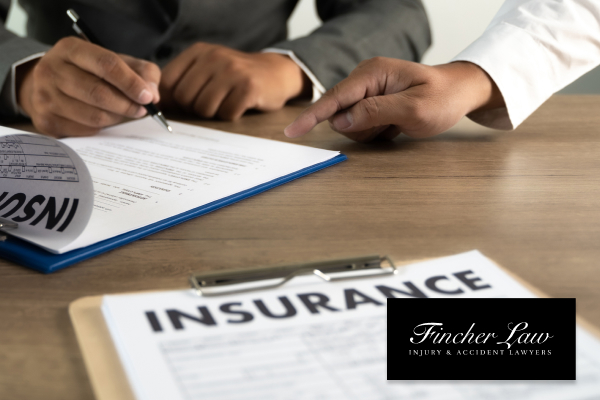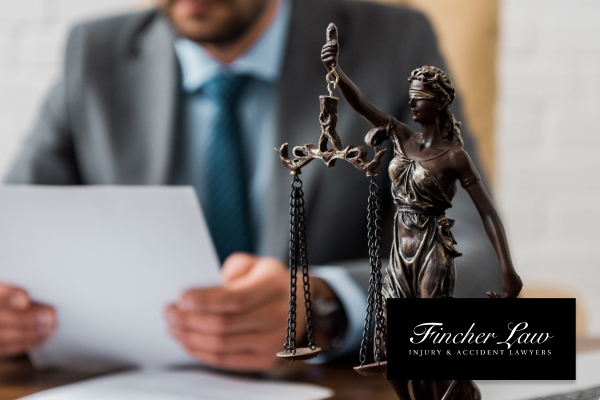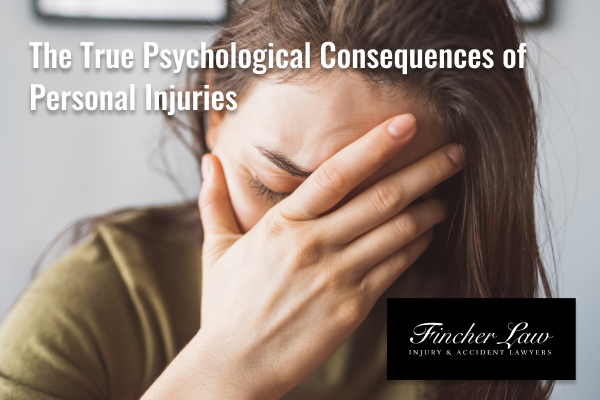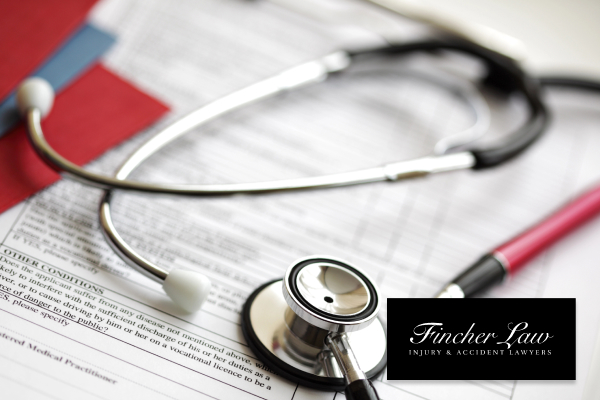What is the Kansas Consumer Protection Act

The Kansas Consumer Protection Act, or KCPA, safeguards consumers from unfair and deceptive business practices. At Fincher Law Injury & Accident Lawyers, we specialize in helping consumers understand and exercise their rights under this important legislation.
Our team is dedicated to helping you become familiar with the law governing KCPA consumer transactions. This act is designed to protect consumers from deceptive and unconscionable practices. Trust Fincher Law to stand by your side and advocate for your consumer rights. Let's learn more about this law governing consumer transactions.
Overview of the Act
The Kansas Consumer Protection Act was established to protect consumers from deceptive and immoral acts. The Act sets clear guidelines for businesses, ensuring transparency and honesty. Under the Act, consumers are entitled to certain rights and protections that help them make informed decisions. The KCPA aims to foster fair competition and maintain public confidence in the marketplace.
The Act covers various consumer transactions, from everyday purchases to larger financial agreements. It outlines prohibited practices, such as false advertising, bait-and-switch tactics, and other deceptive behaviors. By enforcing these rules, the KCPA helps prevent businesses from exploiting consumers. This legislation is a vital tool in promoting ethical business practices across Kansas.
Key Provisions of the Act
The Kansas Consumer Protection Act includes several key provisions designed to protect consumers. These provisions outline specific legal protections, prohibited practices, and consumer rights.
For example, the Act prohibits businesses from engaging in deceptive advertising or making false claims about their products. It also gives consumers the right to cancel certain contracts within a specific period.
The Act ensures that consumers access accurate information about products and services. Businesses are required to disclose all relevant details, allowing consumers to make informed choices. Additionally, the KCPA includes statutory provisions that allow consumers to seek legal remedies if their rights are violated. These protections help maintain fairness and transparency in the marketplace.
Scope of the Kansas Consumer Protection Act

The Kansas Consumer Protection Act is a vital legislation designed to safeguard consumer rights and provide robust buyer protection. The act targets deceptive or unconscionable acts committed by businesses, ensuring that consumers are not subjected to unfair practices.
Its substantive provisions protect against identity theft, unbargained-for warranty disclaimers, and deceptive practices. The attorney general's office is critical in public enforcement, imposing civil penalties on businesses that violate the Protection Act.
Under the KCPA, consumers are entitled to private remedies, including compensation for damages and attorney fees. The act includes a three-day cancellation period, allowing buyers to reconsider certain purchases. If a business is found to commit deceptive or unconscionable acts, it can face harsh consequences.
This buyer protection act is construed liberally to maximize its efficacy. It ensures that only merchandise meeting fair standards is sold and that deceptive acts are minimized, thereby providing consumers with the protection they deserve.
The Kansas Consumer Protection Act applies to many consumers and businesses. Eligible consumers covered include:
- Individuals and families purchasing goods or services for personal use.
- Small businesses engage in transactions with other businesses or consumers.
- Non-profit organizations involved in consumer transactions.
- Senior citizens and vulnerable populations may be more susceptible to deceptive practices.
Certain types of businesses and transactions are also covered, such as:
- Retailers and service providers operating within Kansas.
- Online and remote sellers who do business with Kansas residents.
- Financial institutions offering loans, mortgages, and other financial products.
However, there are some exceptions, including:
- Certain professional services like legal and medical practices.
- Transactions involving real estate where specific rules apply.
Types of Transactions Covered
The Kansas Consumer Protection Act covers various transactions, including goods, services, door-to-door sales, and financial products.
The Act protects both in-person and online transactions. Whether you're buying a car, signing up for a service, or taking out a loan, the KCPA ensures you have rights as a consumer.
Consumer Rights and Protections
Consumers in Kansas are entitled to several rights and protections under the KCPA. These rights ensure that consumers can make informed decisions and are protected from unfair practices.
Key protections include:
- The right to accurate information
- Providing consumers freedom from deceptive acts
- The ability to seek legal remedies if needed
Knowing these rights is necessary for maintaining fair transactions.
Right to Information
One of the fundamental rights under the KCPA is the right to accurate and complete information. Businesses must provide clear and honest details about their products and services, including pricing, terms of service, and potential risks.
Access to this information helps consumers make well-informed decisions and avoid scams.
Protection Against Deceptive Practices
The KCPA includes safeguards against misleading and unfair business practices. Examples of deceptive practices include false advertising, bait-and-switch tactics, and misrepresentation of products. Legal repercussions for these practices can be adverse, including fines and legal action.
Consumers who experience deceptive practices can seek remedies through legal channels. This may involve filing a complaint with the Kansas Attorney General's office or pursuing a lawsuit. When encountering dishonest business practices, the KCPA ensures that consumers are kept from recourse.
The KCPA aims to create a fair and transparent marketplace by providing these protections. Businesses are held accountable for their actions, and consumers can feel confident in their transactions. Fincher Law is here to help you comprehend and exercise these rights if you encounter deceptive practices.
Legal Processes and Enforcement

The enforcement of the Kansas Consumer Protection Act involves several legal processes. These processes ensure that businesses comply with the Act and that consumers can seek justice when their rights are violated. At Fincher Law, we guide consumers through these legal steps, from filing complaints to resolving disputes. Our goal is to help you achieve a fair outcome.
How to File a Complaint
Filing a complaint under the KCPA is straightforward. Consumers can submit their complaints to the Kansas Attorney General's office. The complaint should include transaction details, the nature of the deceptive practice, and any supporting evidence. This information helps initiate an investigation into the alleged violation.
Investigation and Resolution
Once a complaint is filed, the Attorney General's office investigates it. This process involves gathering evidence, interviewing witnesses, and reviewing business practices. If the investigation confirms a violation of the KCPA, efforts are made to resolve the issue. Resolution may include refunds, repairs, or other remedies for the affected consumer.
Role of the Kansas Attorney General
The Kansas Attorney General plays a crucial role in enforcing the KCPA. This office investigates consumer complaints, prosecutes violations, and educates the public about their rights. The Attorney General also promotes fair business practices and prevents deceptive behavior. Their efforts ensure that the KCPA remains an effective tool for consumer protection.
Remedies and Penalties
The Kansas Consumer Protection Act provides several remedies and penalties to address violations. Remedies are designed to compensate consumers for their losses and correct the wrongdoing. Penalties serve as a deterrent to prevent businesses from engaging in unfair practices. Together, these measures help maintain a fair marketplace.
Consumer Remedies
Consumers affected by violations of the KCPA have several remedies available. These remedies include refunds, repairs, and replacements for faulty products. In cases of financial loss, consumers may be entitled to monetary compensation. Legal action can also result in injunctions to prevent further deceptive practices.
Penalties for Violations
Businesses that violate the KCPA may face considerable penalties. These penalties include fines, restitution to affected consumers, and court orders to cease deceptive practices. Repeated or severe violations can increase fines and more stringent legal actions. The aim is to hold businesses accountable and protect consumer rights.
Why Choose Fincher Law Injury & Accident Lawyers

Choosing Fincher Law Injury & Accident Lawyers means selecting a team dedicated to your consumer rights. We have extensive experience with the Kansas Consumer Protection Act and are committed to achieving the best results for our clients. Our team provides personalized service, ensuring that you receive the attention and support you deserve.
Our knowledge of consumer protection law ensures that you have knowledgeable representation. We are committed to fighting for your rights and achieving the best possible outcomes. Our client-focused approach means you receive personalized and attentive service.
Our Expertise in Consumer Protection
At Fincher Law, we have a deep knowledge of consumer protection laws. Our team has successfully handled numerous cases under the Kansas Consumer Protection Act. We are well-versed in the legal provisions and processes that can help protect your rights. Trust our competence to guide you through your consumer protection case.
Frequently Asked Questions on the Kansas Consumer Protection Act
Many consumers have questions about their rights under the KCPA. At Fincher Law, we provide clear and comprehensive answers to help you understand the Act. We aim to ensure you feel informed and confident in protecting your rights. Below are some common questions we encounter.
Here are some frequently asked questions about the KCPA:
- What types of practices are prohibited under the KCPA?The KCPA prohibits false advertising, bait-and-switch tactics, and misrepresentation of products. Businesses must provide accurate and truthful information about their goods and services. Deceptive practices can lead to legal action and significant penalties.
- Who can file a complaint under the KCPA?Any consumer who believes they have been a victim of deceptive practices can file a complaint. Small businesses and non-profit organizations are also eligible to file complaints. Filing a complaint initiates an investigation by the Kansas Attorney General's office.
- What remedies are available to consumers under the KCPA?Consumers can seek refunds, repairs, and monetary compensation for their losses. Legal action can result in injunctions to prevent further deceptive practices. The goal is to correct the wrongdoing and compensate affected consumers.
- How does the Kansas Attorney General enforce the KCPA?The Attorney General investigates consumer complaints and prosecutes violations. They also work to educate the public about their rights under the KCPA. Enforcement efforts help maintain a fair and transparent marketplace.
Contact Fincher Law to Educate You On the Kansas Consumer Protection Act

If you have questions about the Kansas Consumer Protection Act or believe your rights have been violated, contact Fincher Law Injury & Accident Lawyers today. Our experienced team is here to provide the guidance and support you need. We will help you understand your rights and explore your legal options. We have a long track record of successful cases and satisfied clients.
At Fincher Law, we are committed to protecting consumers and holding businesses accountable. Our consumer protection law expertise ensures you receive the best possible representation. Contact us today to schedule a consultation and take the first step toward resolving your consumer protection issue.
Call us now or visit our website to learn more about our services.

























